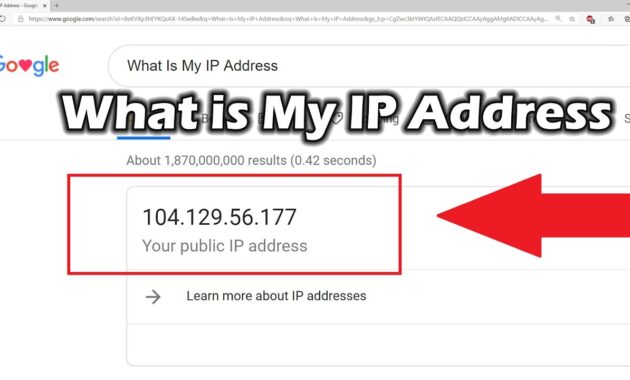
What is my ip?
What is my ip: In the digital age, where virtually everything is connected to the internet, understanding your IP address is a fundamental aspect of online communication. Your IP address serves as a unique identifier, allowing devices to communicate and access the internet. In this article, we will delve into the concept of an IP address, its significance, and how you can easily find out “What is my IP?”.
The Basics of IP Address
An IP address, short for Internet Protocol address, is a numerical label assigned to each device connected to a computer network that uses the Internet Protocol for communication. It acts like a digital address, enabling devices to locate and communicate with each other over the vast network of the internet.
There are two types of IP addresses:
- IPv4 (Internet Protocol version 4): This is the most common type of IP address used today. It consists of four sets of numbers separated by periods, such as 192.168.0.1. IPv4 addresses are finite and, due to the rapid expansion of the internet, have become increasingly scarce.
- IPv6 (Internet Protocol version 6): To address the shortage of IPv4 addresses, IPv6 was introduced. IPv6 uses a longer format consisting of eight sets of alphanumeric characters, allowing for a significantly larger number of unique addresses.
Importance of Your IP Address
Your IP address serves several crucial functions:
- Device Identification: Just as your home has a unique address, your IP address distinguishes your device on the internet. It’s used to identify your location and connect you to websites, servers, and other online services.
- Location Determination: IP addresses can reveal your approximate geographical location. While they won’t pinpoint your exact address, they can provide information about the city or region you’re connecting from.
- Network Routing: When you request a web page, your IP address plays a role in routing the data from the server to your device and vice versa.
- Security and Privacy: IP addresses are essential for online security measures, including firewalls, access controls, and anti-spam systems. However, they can also be used to track your online activities, which highlights the importance of protecting your privacy.
Finding Your IP Address
To discover your current IP address, follow these simple steps:
- Open a Web Browser: Launch your preferred web browser on any device connected to the internet.
- Search “What is my IP”: In the search bar, type “What is my IP” and hit Enter.
- View the Result: The search results will display your IP address, which typically appears as a sequence of numbers separated by periods.
Alternatively, you can use dedicated websites that provide your IP address information directly without the need to search.
Conclusion
Understanding your IP address is a fundamental part of navigating the digital landscape. It’s a crucial piece of information that enables your device to interact with the internet and other devices seamlessly. By knowing “What is my IP?”, you gain insight into how data flows between your device and the online world. As technology continues to evolve, the concept of IP addresses remains an essential building block of our interconnected world.
















